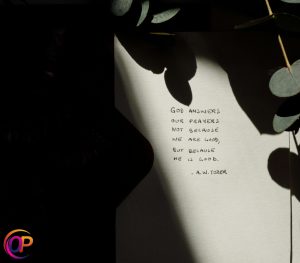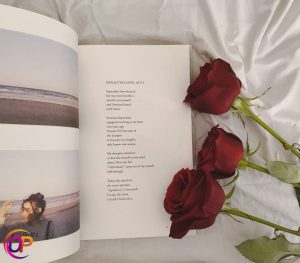When it comes to English literature exams, many students—especially those who follow the AQA syllabus—find it difficult to come across before reading poetry. As the name means, unseen poetry includes having pupils analyze and evaluate unseen poetry aqa past papers that they have never read before.
This essay explores the complex issues of handling poetry that haven’t been included in AQA past papers and provides plans, ideas, and advice for success.
Unseen Poetry AQA Past Papers
In the dancing shadows of light,
Where the silent night dances with says
Not seen by prying eyes,
The secrets held within the mind.

A melody of words unsung,
In the tapestry of silence hung,
Each verse a thread of hidden grace,
In the maze of space and time.

Echoes of a forgotten song,
In realms where dreams and truth belong,
presenting the hard and loving facts,
In the depths of the unseen mind.

Unraveling mysteries, one by one,
As dawn breaks and night is done,
The unseen poetry of the hug of life,
Reveals the beauty of every trace.
Understanding the Format of Unseen Poetry AQA Past Papers
Overview of Unseen Poetry AQA Past Papers Exam Structure
The AQA English literature exams typically include a section dedicated to unseen poetry. This section assesses students’ ability to critically analyze unseen poetry aqa past papers under timed conditions.
Students are presented with one or more unseen poems and are required to respond to questions that test their understanding, interpretation, and analysis of the text.
Types of Unseen Poetry AQA Past Papers
Past AQA papers may have poetry questions that are not visible. Students may be asked to analyze two poems, study a particular theme or literary device, or offer an opinion of the style or content of the poem.
It is essential to understand the various question types in order to prepare properly.
Techniques for Analyzing Unseen Poetry AQA Past Papers
Close Reading Strategies
Close reading is a fundamental skill for analyzing unseen poetry. It involves paying attention to details such as language, imagery, and structure to uncover layers of meaning within the text.
Close reading allows students to delve beneath the surface of the poem and extract deeper insights.
Exploring Word and Voice of Unseen Poetry AQA Past Papers
Unseen poetry, a staple of English literature exams, presents students with the challenge of interpreting and analyzing poems they have not encountered before. In the context of unseen poetry aqa past papers, this task becomes even more intricate as students navigate through the words and voices of unfamiliar poems.
This article delves into the art of exploring the word choices and voices of unseen poetry in AQA past papers, offering insights, strategies, and examples for effective analysis.
Understanding Word Choice and Voice in Unseen Poetry
Word Choice
The selection of words by an unseen poetry aqa past papers is deliberate and significant. Each word contributes to the overall meaning, tone, and imagery of the poem.
Analyzing word choice involves examining the connotations, denotations, and semantic fields of individual words to uncover layers of meaning and intention.
Voice
The character or speaker that the poet creates for the poem is referred to as the voice. The voice can be different from the poet’s own identity and can be expressed in a number of ways, including drama speech, persona poetry, or first-person narrative.
When analyzing voice, one must take into account the point of view, attitude, and tone and how these affect the reader’s understanding of the poem.
Strategies for Analyzing Word Choice and Voice
Close Reading
Close reading is a fundamental strategy for analyzing word choice and voice in unseen poetry aqa past papers. Pay attention to the nuances of language, including specific vocabulary, imagery, and figurative language.
Consider the connotations of words and how they contribute to the overall tone and mood of the poem.
Contextual Understanding
Understanding the context can provide insights into the poet’s intentions and the significance of certain word choices. Consider how language may reflect or challenge prevailing norms, beliefs, or ideologies of the time.
Comparative Analysis
Compare and contrast the word choices and voices of different poems within the same exam or across different exams.
Look for patterns, themes, or stylistic features that emerge across multiple poems and consider how they contribute to the overall effect of the unseen poetry aqa past papers.
Examples of Word Choice and Voice in Unseen Poetry AQA Past Papers
Example 1: “Ozymandias” by Percy Bysshe Shelley
Words like “vast,” “lack,” and “colossal” are used in Shelley’s “Ozymandias” to describe the statue of his glory and eventual decay.
The traveler’s voice stresses the brief lifespan of human efforts while inspiring awe and reflection.
Example 2: “War Photographer” by Carol Ann Duffy
Duffy’s “War Photographer” employs words like “spools,” “darkroom,” and “red light” to create a vivid portrayal of the photographer’s dark and solitary world.
The voice of the photographer is detached yet deeply introspective, inviting readers to confront the realities of conflict and suffering.
Identifying Themes and Imagery
Analyzing themes and imagery is essential for understanding the underlying message of a poem. By identifying recurring motifs, symbols, and figurative language, students can decipher the unseen poetry aqa past papers intended meaning and thematic concerns.
Analyzing Language and Structure
Examining the poet’s choice of language and structural techniques provides valuable insights into the poem’s form and content.
Students should consider elements such as rhyme, meter, tone, and syntax to uncover the poem’s aesthetic and rhetorical qualities.
Understanding the Unseen Poetry AQA Past Papers
Success in English literature exams requires an understanding of the poetry questions that are not included in unseen poetry aqa past papers. Students are given unfamiliar poems to read in these questions, and they have a time limit in which to assess and understand the material.
Students who want to successfully answer these questions need to develop an orderly method for dissecting poems they haven’t read. To do this, read the poem aloud several times to understand its general meaning, listen to the poet’s language, structure, and tone choices, and identify important themes, imagery, and literary devices.
Through the use of a methodical approach to analysis, pupils can unearth the multiple levels of import present in the poem and create observant answers to the matching issues.
Moreover, by working through previous papers, students can become more comfortable with the structure and tone of unknown poetry problems, improving their analytical abilities and trust in advance of the test.
In summary, for students hoping to do well on their English culture exams, it is vital that they grasp the poetry questions that are not included in AQA past tests.
Tips for Effective Writing in Unseen Poetry AQA Past Papers Responses
Planning Your Response
Before diving into your analysis, take a few moments to plan your response. Consider the key points you want to address and the structure of your essay. Planning ensures coherence and clarity in your writing.
Crafting To Analysis
Your introduction sets the tone for your analysis and provides context for your interpretation. Start with a brief overview of the poem and its themes, then outline the main points you will discuss in your essay.
Developing Detailed Analysis
The test of the language, structure, and substance of the poem forms the core of your response. In order to back up your views, give specific instances from the text and explore the nuances of the poet’s style. Read More..
Conclusion Writing Techniques
Offer some final insights or reflections on the poem’s significance, leaving the reader with a lasting impression.
Sample Analysis of an Unseen Poetry AQA Past Papers
To illustrate these techniques in action, let’s analyze a sample unseen poem from an AQA past paper, dissecting its themes, imagery, and literary devices.
Importance of Practicing with Unseen Poetry AQA Past Papers
Using past exam papers as practice is crucial for exam success. It helps students create effective solutions to these tasks by educating them with the structure and tone of AQA unseen poetry questions.
FAQs
Q: How can I improve my close reading skills for unseen poetry?
A: Engage in regular practice by analyzing a variety of poems and discussing them with peers or teachers.
Q: What should I focus on when analyzing the language of a poem?
A: Pay attention to the poet’s use of figurative language, diction, and syntax to uncover layers of meaning.
Q: Is it necessary to memorize specific poems for the exam?
A: No, the AQA exams typically feature unseen poems, so memorization is not required. Focus on developing your analytical skills instead.
Q: How can I manage my time effectively during the exam?
A: Allocate enough time to read and analyze each poem carefully, and plan your essay before writing to ensure coherence and organization.
Q: Are there any resources available for practicing with past papers?
A: Yes, past papers and mark schemes are readily available on the AQA website and other educational platforms.
Conclusion
A set of close reading skills, literary analysis methods, and successful writing strategies are needed to become proficient at studying poetry that hasn’t been included in unseen poetry aqa past papers.
Through comprehension of the examination structure, application of analytical skills, and practice with previous papers, students can boldly and successfully tackle poetry questions that they haven’t seen before.
